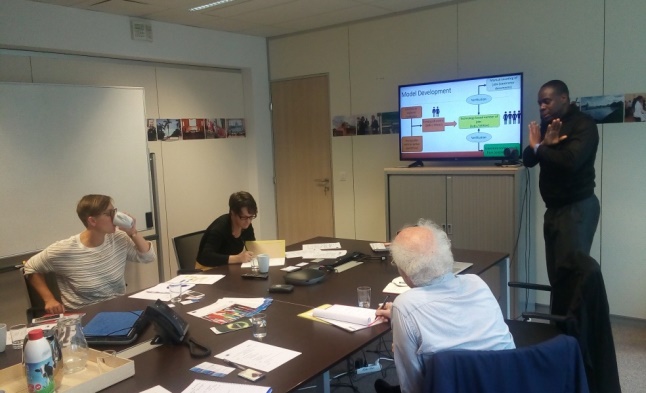The TAF is studying the employment generation results of sustainable energy projects, looking to track job creation and eventually mainstream this goal into EU development projects in Africa – and beyond.
A new TAF mission is currently studying the employment generation potential of sustainable energy projects in Sub-Saharan Africa. The aim is to identify the trends and translate them into a quantifiable indicator, which will allow to factor employment generation into programming and decision making.

Consultation meeting with the EUEI-PDF to collect data on employment generation from projects in the SSA region.
There is a new emphasis to identify more labour-intensive subsectors in which African countries could have a competitive advantage, or meet strong domestic demand.
So far, the study has confirmed that the sector of sustainable energy continues to generate new employment: examples of labour intensive technologies include general biomass based systems like improved cook stoves (portable and/or fixed), waste to biogas (tubular and fixed dome), waste to energy interventions like municipal solid waste as well as HPC, and hydro systems, which are particular labour intensive during construction and installation. Solar lanterns and portable solar kits in terms of assembly and distribution also offer enormous job opportunities.
Job creation opportunities also exist for training, research and capacity building of practitioners – especially in the rural context. Core areas identified for training include standards and quality assurance, business skills and technical competency –especially for women, in solar and biogas. Target groups include value chain actors with emphasis on importers, distributors, wholesalers, retailers, manufacturers, assemblers, installers, and operation & maintenance personnel.

